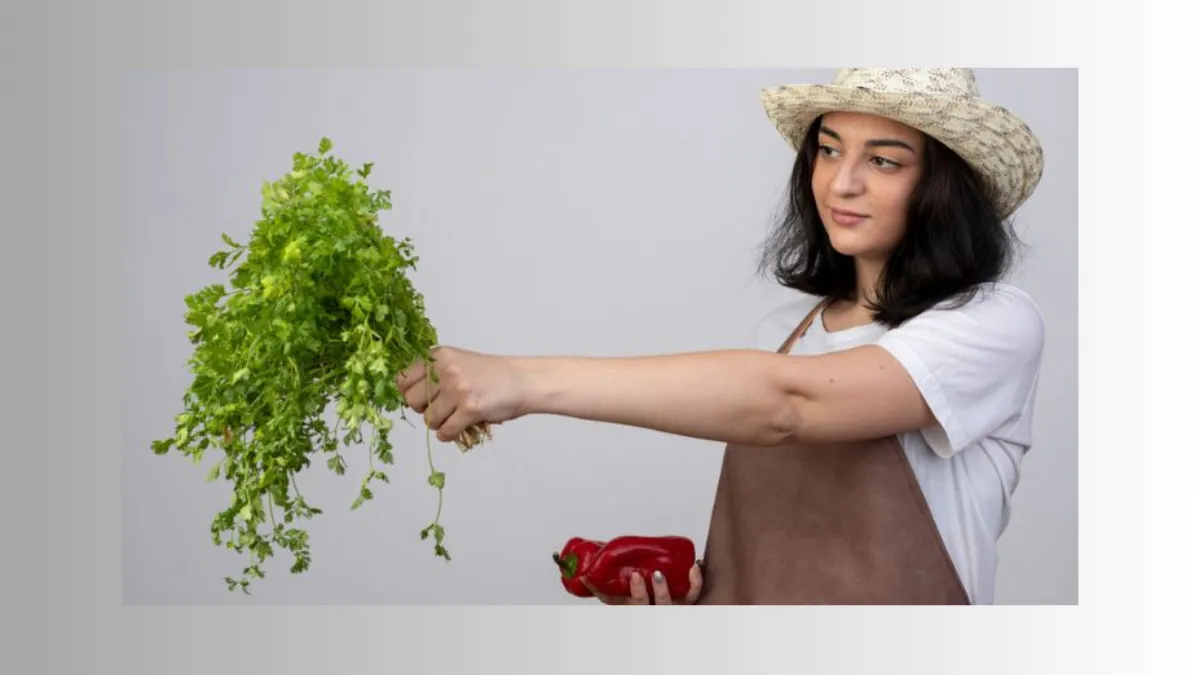Perennial vegetables offer a unique advantage in gardening by continuing to grow year after year without the need for replanting. While perennial fruits like raspberries and strawberries are widely recognized, the diverse selection of perennial vegetables often goes unnoticed. These plants not only contribute to a sustainable food source but also require less maintenance than annual crops.
By incorporating perennial vegetables into your garden, you can enjoy fresh harvests season after season with minimal effort. From asparagus and rhubarb to artichokes and sorrel, these vegetables provide long-term yields while enhancing the diversity of your garden.
Here Are Perennial Vegetables
Asparagus (Asparagus officinalis)
Asparagus is a well-loved perennial vegetable, known for its tender shoots that emerge each spring. Once fully established, an asparagus bed can provide harvests for up to two decades. This hardy plant flourishes in well-drained soil and requires little maintenance after the initial planting. Although it takes a few years for asparagus crowns to mature, the investment is worthwhile as they produce an abundance of flavorful spears season after season.
Rhubarb (Rheum rhabarbarum)
Rhubarb is a perennial vegetable cherished for its tart stalks, which are often used in desserts and preserves. Thriving in well-drained soil, rhubarb plants can persist for many years with minimal care. While the plant takes time to establish, once mature, it yields a steady supply of stalks each season. Its durability and ability to return annually make it a reliable and rewarding addition to any home garden.
Artichoke (Cynara cardunculus var. scolymus)
Artichokes are valued for their edible hearts and flavorful leaves, making them a favorite among culinary enthusiasts. These plants thrive in warmer climates and require a long growing season. Once established, artichokes can produce multiple harvests over several years. Their striking appearance also adds ornamental beauty to garden landscapes, making them both a practical and visually appealing choice for gardeners.
Sorrel (Rumex acetosa)
Sorrel is a hardy perennial vegetable with a tangy, lemon-like flavor, making it a versatile ingredient in various dishes. This resilient plant grows well in different soil types and needs little maintenance. Sorrel’s continuous harvest throughout the growing season ensures a steady supply of fresh leaves for salads, soups, and sauces. Since it regenerates annually, it remains a reliable source of greenery for the kitchen year after year.
Jerusalem Artichoke (Helianthus tuberosus)
Despite its name, Jerusalem artichoke is not related to traditional artichokes. Instead, it is cultivated for its edible tubers, which have a nutty and slightly sweet taste. Native to North America, this resilient plant adapts well to different soil conditions and produces tall sunflower-like stalks with bright yellow flowers in late summer. Beneath the soil, clusters of tubers develop, which can be harvested in the fall for use in soups, stews, and salads.
Lovage (Levisticum officinale)
Lovage is a lesser-known perennial vegetable with a strong, celery-like flavor. This herbaceous plant thrives in fertile, moist soil and is particularly suited for partially shaded areas. Lovage produces aromatic leaves and stems that can enhance various dishes. Additionally, its yellow flowers attract beneficial pollinators, making it a valuable plant for both culinary and ecological purposes.
Perennial Kale (Brassica oleracea var. acephala)
Unlike traditional kale varieties grown as annuals, perennial kale continues to produce leafy greens for multiple years. Often referred to as tree collards or walking stick kale, this hardy vegetable withstands diverse growing conditions and provides a consistent supply of nutritious greens throughout the year. Its ability to thrive in cool and warm climates makes it a practical choice for gardeners seeking a long-lasting and sustainable vegetable source.
Chinese Artichoke (Stachys affinis)
Chinese artichoke, also known as crosne, is a perennial vegetable prized for its small, crunchy tubers with a mild, nutty flavor. This plant is well-suited for temperate climates and can be cultivated in containers or garden beds. During late spring, Chinese artichoke plants produce delicate white flowers, followed by clusters of edible tubers underground. These tubers, harvested in the fall, can be eaten raw or cooked, adding a gourmet touch to meals.
Bottom Line
Perennial vegetables provide a practical and sustainable approach to gardening by offering continuous harvests without the need for frequent replanting. Whether you choose well-known varieties like asparagus and rhubarb or explore unique options such as lovage and Chinese artichoke, these plants contribute to a productive and low-maintenance garden.
By integrating these resilient vegetables into your garden, you ensure a steady supply of fresh produce while reducing the effort required for annual planting. With their ability to thrive year after year, perennial vegetables are a valuable addition to any home garden focused on long-term productivity and sustainability.
FAQs
How do perennial vegetables differ from annual vegetables?
Perennial vegetables continue to grow and produce harvests year after year without needing to be replanted, while annual vegetables complete their life cycle in a single season and must be replanted each year. Perennials require less maintenance and offer long-term sustainability.
Do perennial vegetables require special care?
Most perennial vegetables are low-maintenance once established. They typically need well-drained soil, occasional pruning, and seasonal fertilization to thrive. Some, like asparagus, may take a few years to establish before producing abundant harvests.
Can I grow perennial vegetables in containers?
Yes, many perennial vegetables, such as sorrel and Chinese artichokes, can be grown in containers. However, larger plants like asparagus and artichokes may require deep pots and regular soil amendments to ensure healthy growth.
Are perennial vegetables suitable for all climates?
While many perennial vegetables adapt to different climates, some varieties thrive better in specific conditions. For example, artichokes prefer warmer regions, whereas perennial kale and Jerusalem artichokes tolerate colder temperatures. Choosing varieties suited to your local climate will improve their longevity and productivity.
